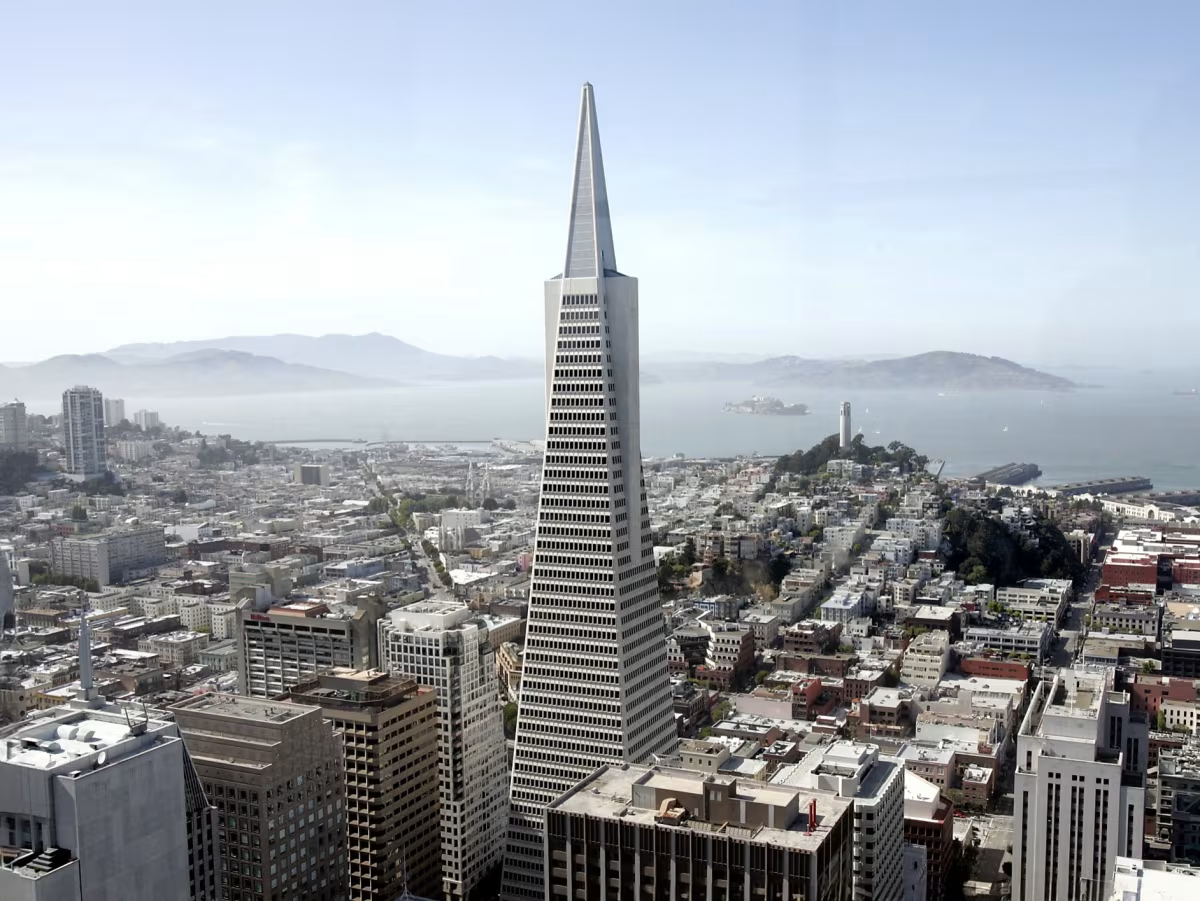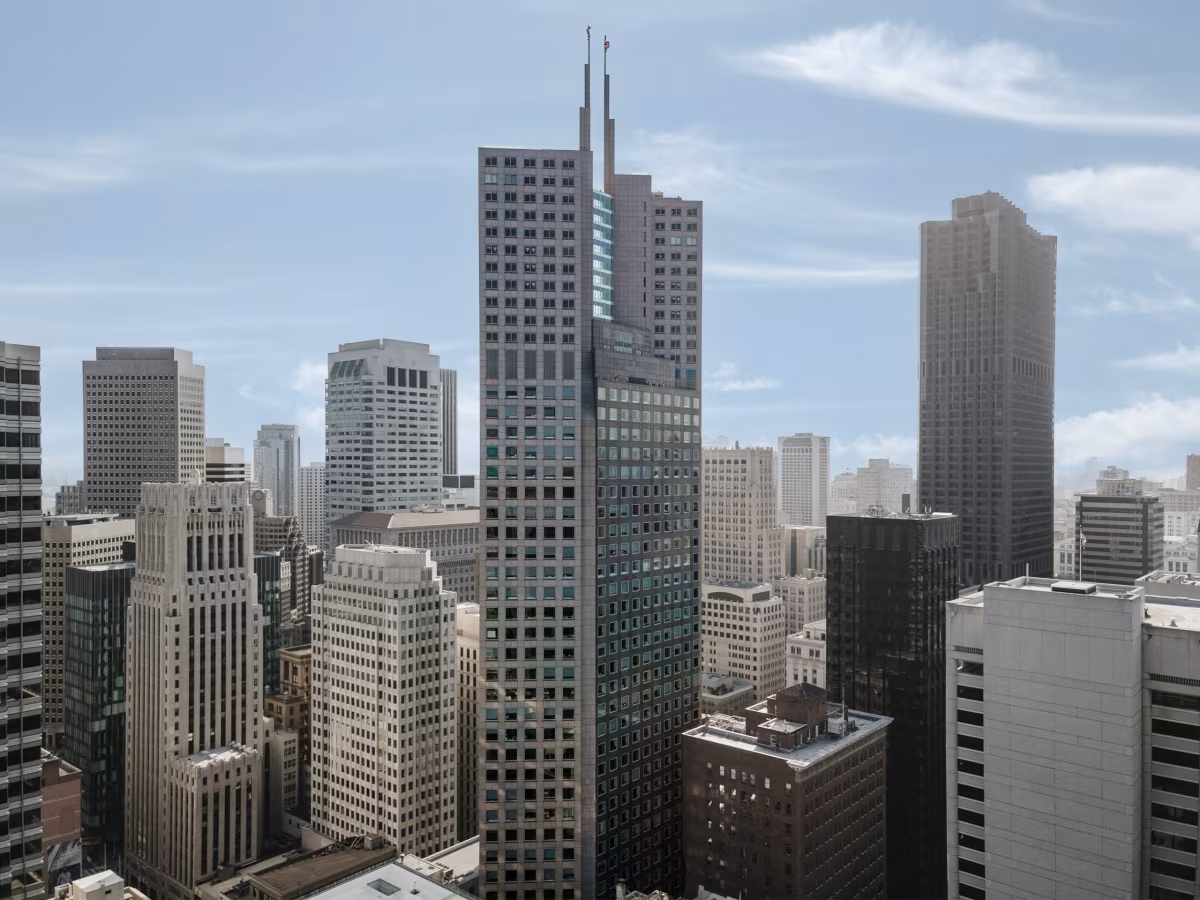Transamerica Pyramid vs 345 California Center


Comparing the Transamerica Pyramid and the 345 California Center is interesting because they both rise in San Francisco, CA, yet they were conceived by two different design teams, William L. Pereira and Skidmore, Owings & Merrill, and were completed at different points in time. They were finished more than a decade apart.
This contrast within the same city allows us to see how different creative minds interpreted the evolving needs of San Francisco across time.
Let's take a closer look!
Height & Size
Architectural Style
Both the Transamerica Pyramid and the 345 California Center were designed in line with the aesthetic conventions of the Postmodernism style.
At the time, this style was at the height of its popularity. So both William L. Pereira and Skidmore, Owings & Merrill followed what was in many ways expected of them, producing designs that fit comfortably within contemporary architectural norms, rather than breaking with convention.
Uses
The 345 California Center follows a mixed-use model, combining commercial and hotel. In contrast, the Transamerica Pyramid has remained primarily commercial.
The 345 California Center incorporates a 5-star hotel with 155 rooms. More information is available at the official website.
The 345 California Center also provides 180 parking spaces.
Structure & Facade
Both towers share the same structural solution, a Frame system.
A frame structure uses a grid of columns and beams to carry the building's loads. This frees the walls from structural duties, allowing for flexible floor plans and larger windows.
However, when it comes to the facade, both buildings use different approaches. The Transamerica Pyramid uses a Modular facade, while the 345 California Center uses a Window Wall facade.
A Modular facade like the one seen in the Transamerica Pyramid employs prefabricated panels, often mixing solid surfaces with smaller windows, while a window-wall facade like the one seen in the 345 California Center uses panels fitted between floor slabs, leaving slab edges visible.
| Transamerica Pyramid | 345 California Center | |
|---|---|---|
| William L. Pereira | Architect | Skidmore, Owings & Merrill |
| 1972 | Year Completed | 1986 |
| Postmodernism | Architectural Style | Postmodernism |
| Commercial | Current Use | Mixed |
| 48 | Floors Above Ground | 48 |
| 260 m | Height (m) | 189 m |
| 18 | Number of Elevators | 12 |
| Frame | Structure Type | Frame |
| Steel | Vertical Structure Material | Steel |
| Concrete | Horizontal Structure Material | Concrete |
| No | Facade Structural? | Yes |
| White Quartz | Main Facade Material | Granite, Glass |
| Dinwiddie Construction Company | Main Contractor | Hathaway Dinwiddie |
| Transamerica Corporation | Developer | Norland Properties |
| CA | State | CA |
| San Francisco | City | San Francisco |
| 600 Montgomery Street | Address | 345 California Street |